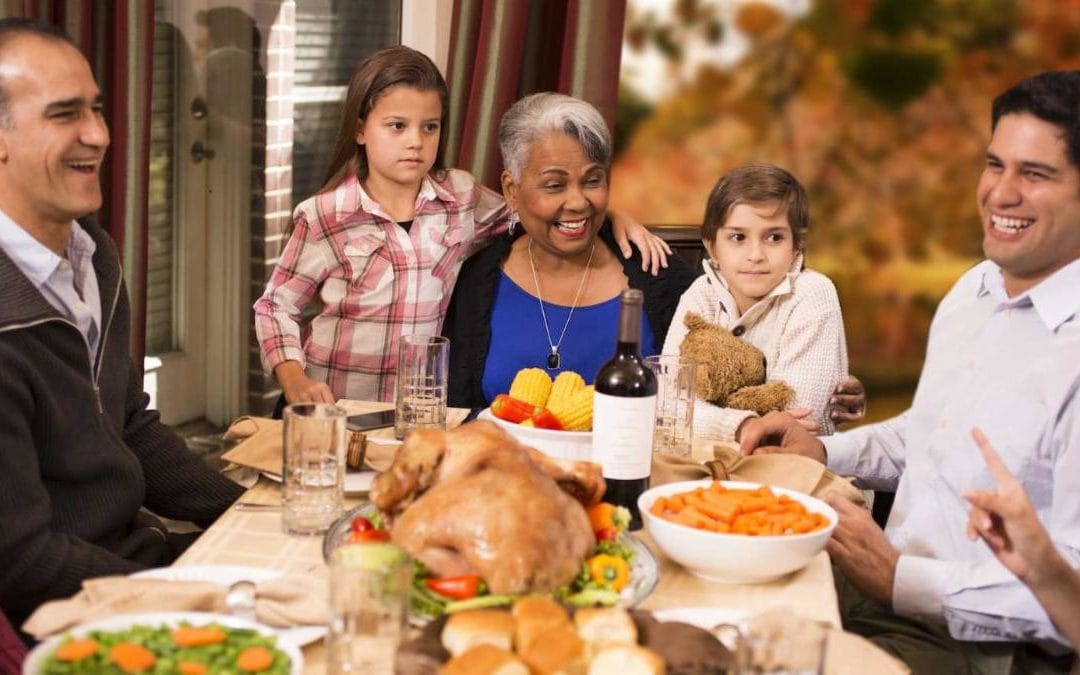November is my favorite month. Not just because it’s my birthday month, but the weather is cool and crisp, and the Thanksgiving holiday offers a chance to give thanks. And in these polarized times, we might all benefit from a little more gratitude in our lives.
And while you’re gathered with family and friends, giving thanks, maybe think about having ‘the conversation?’
In a 2018 national survey done by The Conversation Project, while 92% of Americans say it’s important to discuss their wishes for end-of-life care, only 32% have had such a conversation. 95% of Americans say they would be willing to talk about their wishes, and 53% even say they’d be relieved to discuss it. Three years, and one extraordinary pandemic later, I am hopeful that the 32% has improved.
As a colleague recently said, “None of us will get out of here alive.” Let’s use gathering around the dining room or kitchen table, not the ICU waiting room, to talk about what matters most to us with the people who matter most–before it’s too late.
Ellen Goodman, author and founder of The Conversation Project explains that “The Conversation Project emphasizes having a conversation on values — what matters to you, not what‘s the matter with you.”
In this November issue of The Flame,we encourage you to think about your values and move forward on having the conversation.
— Betty Long, RN, MHA, President/CEO, Guardian Nurses Health Advocates
Have ‘The Conversation’
We in the United States are paying an enormous toll, both financially and emotionally, by maintaining the taboo against talking about death and dying in this country.
Many healthcare providers view their inability to “cure” their patient as a professional failure and are therefore reluctant to suggest palliative care even when they know there is little hope of recovery.
In 2018, Americans spent $3.65 trillion on health care. $365 billion of it went for end-of-life care. Some estimates say that 20-30% of these expenses may have had no meaningful impact. When patients are finally referred to hospice for end of life care, it is often within the last two weeks of their lives.
Likewise, most patients and family members have no idea how to discuss the reality of death with each other. While other societies educate their members about death and the process of dying, we are left to figure it out for ourselves. Many of us don’t know what to say, what to do, or how to cope. Words fail us.
We do not do our loved ones any favors by not planning or communicating to them what we would want should a situation arise where the healthcare team needs to know what our wishes are.
And when we do talk about death, we use phrases like “He lost his battle with cancer,” or “She fought bravely, but Parkinson’s won.” As though patients weren’t trying hard enough, or they failed. What if we didn’t use those phrases? What if we began to understand that in many clinical situations, death is inevitable. Perhaps it might be more humane to talk about the patient’s quality of life rather than the quantity?
The bottom line is that we need to get past the stigma that death is failure. It is not. We all will die someday, that is for certain. None of us are immune.
Knowing that, please consider having ‘the conversation.’ Maybe even think about having it with your family over the Thanksgiving holiday. The Conversation Project is a public engagement initiative with a goal that is both simple and transformative: to help everyone talk about their wishes for care through the end of life, so those wishes can be understood and respected.
Their website offers free, downloadable Conversation Guides (even in several languages) to help you have ‘the conversation’ with the important people in your life about your – or their – wishes for care through the end of life.
To prepare, think about:
- Have you experienced the death of a loved one? If so, what was that like for you? How did it change you, if at all?
- Think about your deepest beliefs about life and death. Understanding what those beliefs are may help you to understand your own end of life care—-and what do you want that care to look like?
- Who should you appoint to make those care decisions for you knowing that that person will carry out your wishes?
- What do you want those wishes to be?
And then, when you are ready and confident of what you want, please take the important step of documenting your wishes in some way. After experiencing many personal and professional experiences with dying patients, including my own parents, aunts and uncles, and friends, I have learned that this is quite possibly the most caring gift you can give to those you leave behind.
Happy Thanksgiving!

